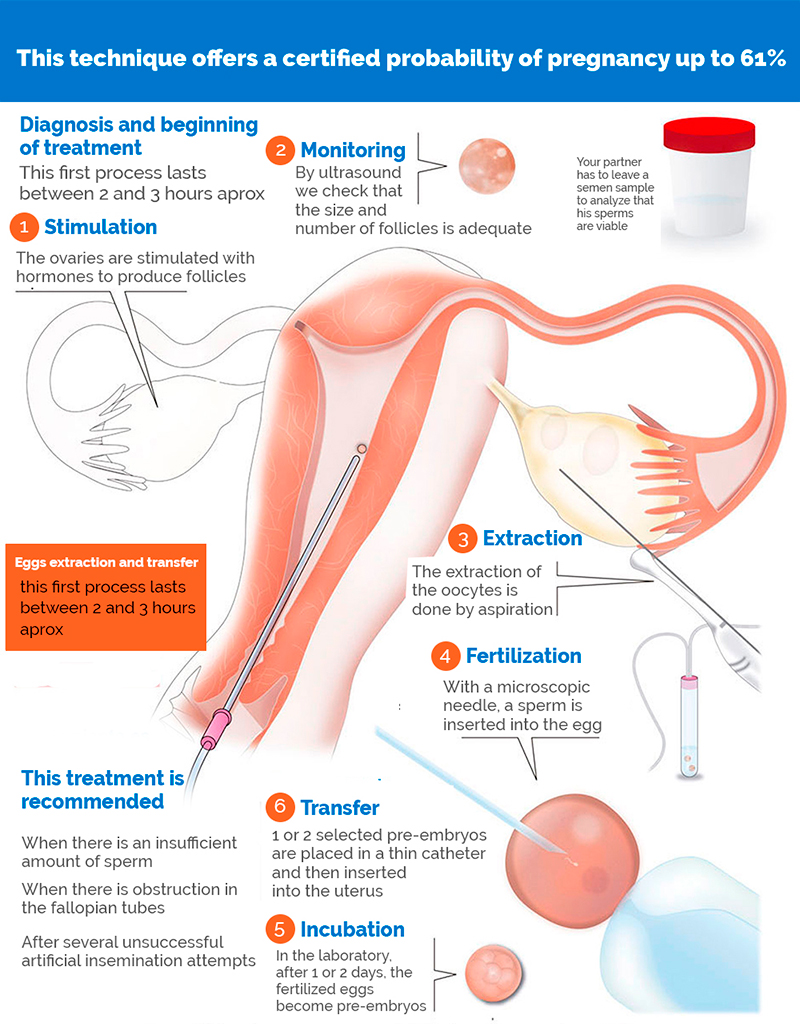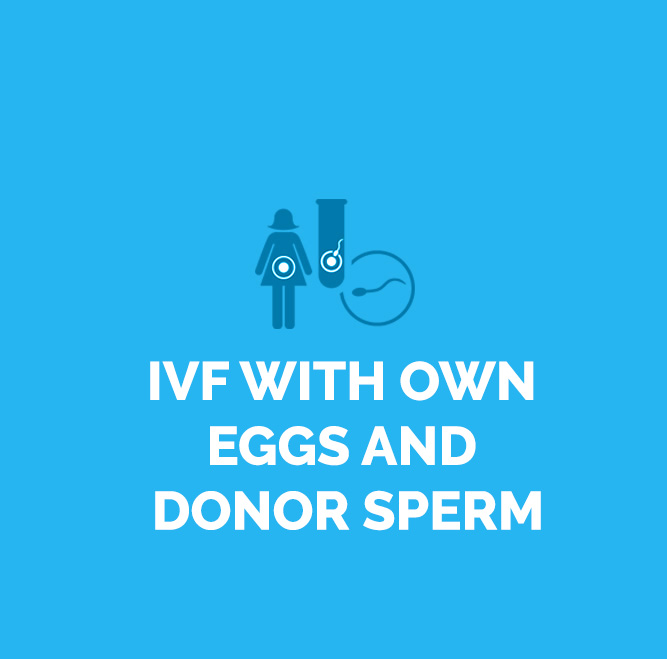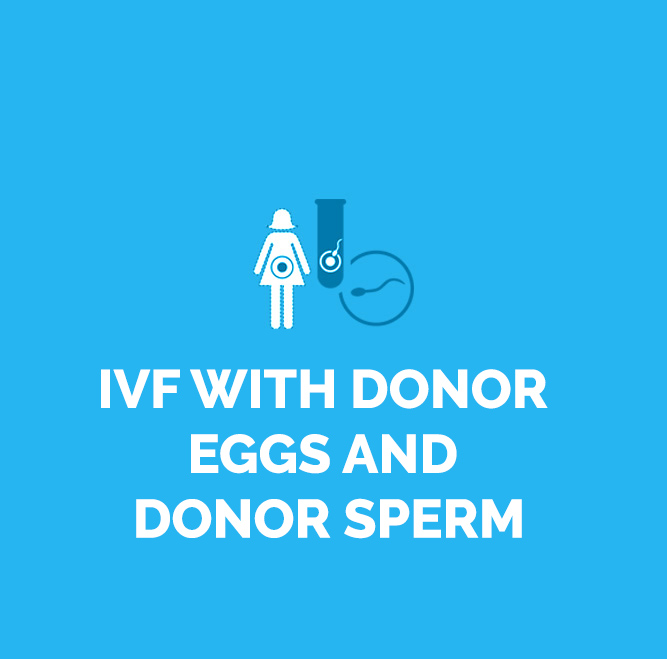In Vitro Fertilization with eggs and sperm from the couple is a laboratory technique that fertilize the previously extracted eggs with your partner´s own sperm. This technique offers a certified probability of pregnancy up to 61%.. Once Fertilized, the eff becomes a pre-embryo and it´s inserted into the uterus for futher development. Typically, in normal menstrual cycle, only one egg develops each month. For a In Vitro Fertilization, we need to obtain more than just obe egg, so it is necessary to stimulate the ovaries hormonally to get several mature eggs at the same time.
In which cases is this recommended
This type of In Vitro Fertilization is ideal when there is an insufficient quantity of sperm to be able carry out artificial insemination or when there is obstruction or damage in the fallopian tubes, since there is no other possibility of achieving pregnancy. This technique is also recommended after havingmade several attempts at artificial insemination without succes.
IVF STEPS
1. Ovulation induction
The ovaries are stimulated through the administration of hormones (FSH-stimulating follicle and, in some cases, LH luteostimulatory). The development of the cycle is monitored by ultrasound until it is verified that the number and size of the follicles is adequate. Then, another hormone that simulates LH is administered, which is the hormone that naturally causes ovulation, allowing the release of the egg.
2. Eggs extraction and In Vitro Fertilization
The extraction of the oocytes is done by puncture and aspiration of the follicles. It is a procedure that requires anesthesia(sedation). Once retrieved, the eggs are kept for a few hours in culture environment, and, in the meantime, the semen is prepared to isolate the motile sperm. If the technique to be used is ICSI (microinjection of one sperm into each mature egg), the eggs are denuded, which means that the cells surrounding their surface are removed, and one sperm is injected into each of them. In our center we perform ICSI in 99% of cases, and we don't do otherwise unless a different process is indicated. In the case of performing a classic In Vitro Fertilization, the sperms (between 50,000 and 100,000) are placed in the culture environment where the eggs are, and the next day, we check how many of them have been fertilized. Obviously, greater number of eggs and better quality of sperms, means greater chances of obtaining embryos. This technique has the drawback of offering lower fertilization rates, since the sperm is not introduced directly into the egg.
3. Transfer
Only on the day after the eggs extraction and the ICSI(Intracytoplasmic Sperm Injection) we will know the number of the fertilized ones. Over the next 2-3 days these fertilized eggs develop into pre-embryos ready to be transferred to the uterus. On the day of the transfer, the pre-embryos with the best development characteristics are selected. According to the law, we can transfer up to 3 pre-embryos but the most common average number is 2. The pre-embryos are inserted into a fine catheter and are channeled by the gynecologist to the end of the uterus(anesthesia is not necessary). Of the transferred pre-embryos, usually only one of them is implanted, but sometimes more than one gets there, which would lead to a multiple pregnancy.
4. Cryopreservation
The non-transferred pre-embryos are frozen using liquid nitrogen (this cryopreservation is known as vitrification) and are subsequently stored in an embryo bank appropriately identified. These pre-embryos can be used in subsequent cycles if pregnancy is not achieved on the first attempt. Obviously, the treatment to prepare the uterus for a frozen embryo transfer is much easier since the stimulation and extraction of oocytes is not necessary.
SUCCESS RATE
IREGA ACAPULCO
- Cerrada de Cumbres #104 Fracc. Farallón, C.P. 39690
IREGA CANCÚN
- Hospital Galenia Planta Baja Av. Tulum Lote 01 Maza. 01 SM 12 Fracc. Sta. Maria Sike Esq. Nizuc, C.P. 77505
IREGA PUEBLA
- Paseo de las Ramblas No.2A Primer piso Desarrollo Atlixcáyotl, C.P. 72197
USA & CANADA
- USA 011 52 (744) 484 4471
- USA 011 52 (744) 488 11 14
- CANADA 01 52 (744) 484 4471
- adanoliveros52@gmail.com.mx










